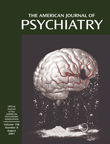This excellent text has certainly achieved its goal in promoting a better balance between psychological and pharmacological treatments for the well-being of those individuals suffering from severe psychoses throughout the world. I heartily endorse this fruitful and thoughtful approach for students, researchers, and clinicians who are treating the acutely and chronically ill.
In his foreword, John Cox of the Royal College of Psychiatrists challenges those with parochial views of neuroscience, genetics, or environmentalism to educate themselves broadly. His clarion call for psychotherapists who have cognitive, dynamic, humanistic, interpersonal, and family orientations should be heard.
The book is structured in sections on 1) cognitive approaches, 2) family, group, and psychosocial approaches, 3) individual psychoanalytic psychotherapy, 4) early interventions using need-adapted psychological treatment models, and 5) an Australian overview. These sections vary from single chapters of 10–30 pages each to three chapters per topic.
After a fine introduction in which there is clear redefinition of the reductionistic view of radical psychopharmacologists and overview of the book, Philippa Garety of King’s College and her colleagues review the current cognitive behavior therapy endeavors in three U.K. groups. They focus on current theory, therapy, and outcome research and also address acute treatment techniques.
Chapter 3, by Peter Hayward of the Institute of Psychiatry, London, reviews barriers to compliance with pharmacotherapy and therapeutic principles to improve compliance. Chapters 4–8 cover multifamily groups, psychosocial family interventions, and group therapy models of treatment. The designs of programs to prevent relapse and crisis residential treatments are perhaps the best in the volume. McFarlane’s studies on the U.S. East Coast clearly define benefits and limitations of psychoeducational models. Baguley’s efforts with community psychiatric nursing approaches in Manchester, U.K., define the limitations of these approaches. Kanas of the University of California, San Francisco, briefly reviews 30 years of the literature and the limits of group therapies from around the world. Problems remain in the selection of patients for long-term versus short-term groups. Davidson’s focus on the themes of social isolation, demoralization, and disconnection in a pilot study of a novel intervention is intriguing. Fenton and Mosher’s study of residential care is certainly innovative as well and is cost-conscious enough to please every health maintenance organization. What it and these other models will do in the long run to solve the enigma of schizophrenia remains to be seen. The brilliant laboratory models of the wiring of the nervous system in mouse gene knockout models are a long way from these clinical realities.
Chapter 9, by Siani and Siciliana, takes us from Verona, Italy, to Scandinavia, and then to the United States in efforts to use in-depth psychoanalytic principles to show improvement in interpersonal relationships in psychotic patients. Chapters 10–12 enrich the perspective by adding studies from Sweden, Norway, and Finland; these chapters add thoughtful new dimensions. There is the creative multicenter Parachute Project in Sweden as well as another multicenter project whose aim is to reduce the duration of untreated psychosis in an early treatment and identification public health program. The schizophrenia project in Turku, Finland (which started 30 years ago), in which pharmacotherapy is considered an adjunct support to a basic psychotherapeutic model, provides worthwhile new data. The chapter authors find that the use of neuroleptic medication is not as mandatory as has been suggested and that there are cases, interestingly, where neuroleptics should be avoided.
Lastly, McGorry’s Australian overview is indeed that, even if it comes from “downunder.” He blends the rich tributaries of psychoanalysis and behaviorism. From the Andreasen scale to Fromm-Reichmann to Sullivan to Tienari and Wynn, chapter 13 provides a wonderful coda to the mysteries of schizophrenic psychoses at the start of the 21st century.

